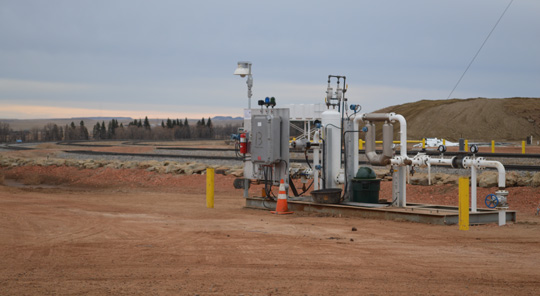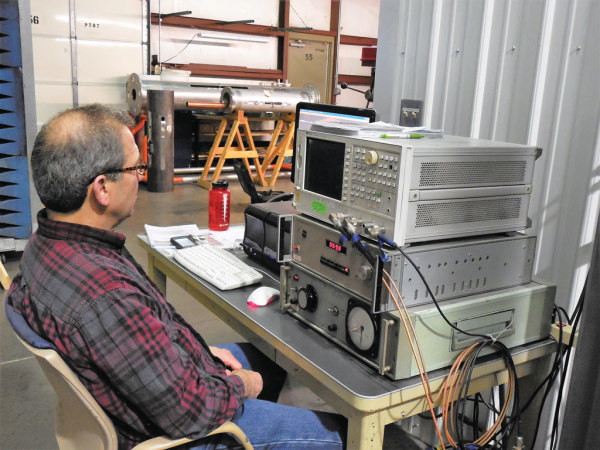

o Understand the fundamentals of flow measurement, its importance, and its application in
various industries (e.g., oil, gas, water, chemicals).
o Define custody transfer and its role in commercial transactions.
o Learn the legal and regulatory frameworks governing custody transfer processes.
o Familiarize participants with different types of flow meters (e.g., turbine, ultrasonic, coriolis,
positive displacement, electromagnetic) and their respective advantages and limitations.
o Understand the factors influencing the choice of flow meter in different applications.
o Learn about the calibration, installation, and maintenance requirements of flow meters.
o Study how to calculate and assess measurement uncertainty in flow measurements.
o Learn methods for error detection, identification, and correction.
o Understand the concepts of accuracy, precision, repeatability, and reliability in flow
measurement.
o Learn about international standards (e.g., ISO, API, OIML) that govern flow measurement and
custody transfer.
o Study legal metrology and its role in ensuring fairness and transparency in custody transfer
transactions.
o Understand the technical requirements for ensuring compliance during custody transfer (e.g.,
calibration, traceability, certification).
o Understand the principles and methods of calibrating flow meters.
o Learn about in-situ verification techniques and procedures.
o Gain practical knowledge of calibration facilities and ensuring traceability to national or
international standards.
o Learn how to collect and analyze flow data for custody transfer.
o Understand data logging, system integration, and automated reporting tools.
o Develop skills in ensuring data integrity and accuracy in reporting.
o Identify common issues in flow measurement systems (e.g., blockages, leaks, pressure
fluctuations) and learn troubleshooting techniques.
o Understand preventive maintenance practices and how to ensure the long-term performance
of flow meters.
o Learn about safety protocols associated with flow measurement and custody transfer
operations.
o Understand the risks associated with handling hazardous fluids and the need for proper safety
systems.
o Study best practices for risk assessment and mitigation.
o Analyze real-life case studies of custody transfer in various industries (oil, gas, chemical
processing).
o Gain practical knowledge of how to implement best practices in custody transfer procedures
This interactive Training will be highly interactive, with opportunities to advance your opinions and ideas and will include;
1. Introduction to Flow Measurement
Overview of Flow Measurement
Measurement Units and Conversions
2. Types of Flow Meters
Differential Pressure (DP) Flow Meters
Positive Displacement (PD) Flow Meters
Turbine Flow Meters
Electromagnetic (Mag) Flow Meters
Ultrasonic Flow Meters
Coriolis Flow Meters
Vortex Flow Meters
Factors Affecting Measurement Accuracy
Measurement Uncertainty
Error Detection and Correction
Custody Transfer Overview
Custody Transfer Standards and Protocols
Critical Considerations in Custody Transfer
Flow Measurement Systems for Custody Transfer
Calibration Procedures
Maintaining Flow Meters
Traceability and Calibration Certification
Installation Considerations
Commissioning Procedures
Flow Data Analysis
Custody Transfer Reporting
Reporting Software and Tools
Health, Safety, and Environmental (HSE) Considerations
Troubleshooting and Best Practices
Case Studies in Oil & Gas, Petrochemical, and Water Industries
Hands-on Practical Training
BTS attendance certificate will be issued to all attendees completing minimum of 80% of the total course duration.
| Code | Date | Venue | Fees | Register |
|---|---|---|---|---|
| IE100-02 | 05-04-2026 | Manama | USD 5450 | |
| IE100-03 | 05-07-2026 | Casablanca | USD 5950 | |
| IE100-04 | 04-10-2026 | Dubai | USD 5450 |

This course aims to provide participants with the knowledge and practical skills needed to operate and maintain custody transfer metering systems, with a focus on accuracy, standards, calibration, and ...

A Custody Transfer Metering Operations course typically focuses on the principles, technologies, and procedures involved in the accurate measurement of fluids (such as oil, gas, or chemicals) during t ...

This course consists of pressure, level, flow, temperature measurement, analogue and discrete signal transmission techniques, process control concepts modes of Proportional, Integral, Derivative (P.I. ...
Providing services with a high quality that are satisfying the requirements
Appling the specifications and legalizations to ensure the quality of service.
Best utilization of resources for continually improving the business activities.
BTS keen to selects highly technical instructors based on professional field experience
Since BTS was established, it considered a training partner for world class oil & gas institution
1st floor, Incubator Buildingو Masdar City, Abu Dhabi, UAE
Sun to Fri 09:00 AM to 06:00 PM
Contact Us anytime!
Request Info